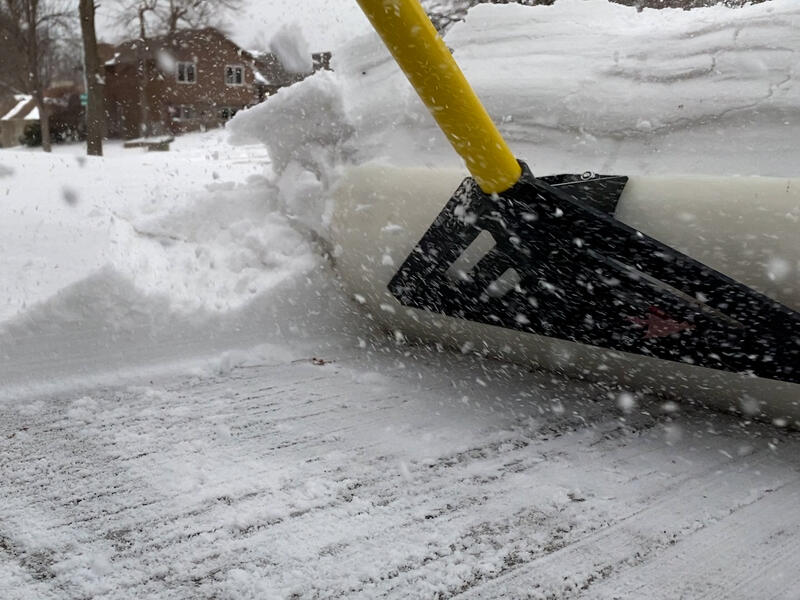Dealing with fall yardwork and winter’s snow and ice are included in the daily routine for people who live in the northern tier of the country. Raking leaves, pulling garden plants, cleaning gutters, and shoveling snow are standard assignments when summer turns to autumn and autumn turns to winter.
Those activities can provide a bit of exercise and help keep you in shape. But, if things go wrong, handling a rake or a shovel can be deadly.
“I think people have to realize that this type of work is actually very strenuous. And that’s not often appreciated by most people. We do see a number of heart events precipitated by that exercise, including heart attacks,” said Gregory Schuchard, M.D., an interventional cardiologist for Sanford Health in Bemidji, Minnesota.
Cold air’s effect
Dr. Schuchard said cold air can be more stressful on the heart than warmer, or even hot, air.
“It constricts, or narrows, vessels in response to the cold temperature that raises blood pressure. It’s the combination of being out in the cold, doing very strenuous activity, which can raise the risk of a cardiac event,” explained Dr. Schuchard.
Any patient whose experienced heart events should be even more cautious and aware when doing yardwork in the winter.
“If they have any underlying heart disease, artery blockages, etc., they should be very careful and cautious in the amount of work and vigorous activity they do. Take it easy, and stop if they get any early warning signs,” said Dr. Schuchard.
Signs and symptoms
Dr. Schuchard said there are both typical and atypical signs of a heart event to be wary of when working outside.
“Chest pressure and chest tightness, we see fairly frequently as a symptom of heart pain or angina (chest pain due to low blood flow to the heart) from artery blockages. But there’s a lot of unusual symptoms. Shortness of breath, fatigue, sweating, lightheadedness, and just not feeling well.
“So, any of these symptoms can potentially be worrisome. We know that in patients, with diabetes for example, they often get minimal or no symptoms, yet can have bad events happen,” he said.
Women in particular may need to be more cautious, “because women sometimes have more unusual symptoms as well, for reasons we don’t understand.”
Get evaluated, and know your limits
Dr. Schuchard said if anyone experiences these symptoms they should get evaluated by a family physician or their primary care provider.
“If it’s worrisome, they may get referred to a cardiology specialist for further evaluation. That’s the usual recommendation, and the way it usually goes. We want to avoid having an acute event that’s life threatening. We can’t predict the future, but we like to proactively minimize those number of events.
“So, I think checking with a family physician is always a great thing to do if you have symptoms,” he said.
Find a doctor: Heart care providers at Sanford Health
Dr. Schuchard recommends anyone who experienced symptoms of a heart event, or especially anyone who has heart disease, a stent, or a heart event in the past needs to consider the risk that’s associated with these tasks.
“Have a family member, or a friend, or hire somebody to do the work for you. It’s just not worth a heart attack trying to do yardwork yourself.”
Learn more
- Preparation key to preventing injury while shoveling snow
- Heart screenings protect against disease, save lives
- High blood pressure is more serious than you think
…
Posted In Emergency Medicine, Health Information, Healthy Living, Heart
